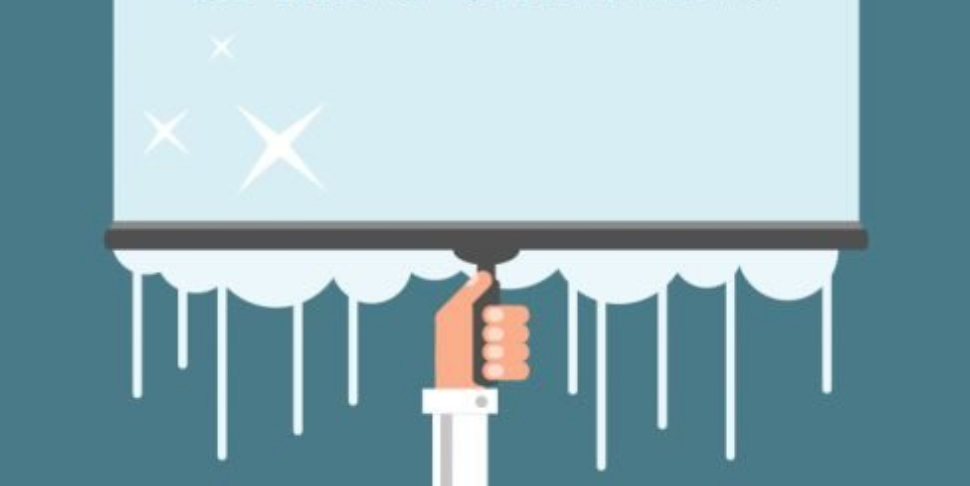by
Stacy Wise
| Mar 23, 2022

Digital Spring Cleaning
Written by Andrea Klinedinst, Compliance Assistant
Spring Cleaning doesn’t have to just be for your home, it can also be for your digital data. Much like physical objects can quickly pile up, your digital life can also easily get cluttered. This year as part of your spring cleaning, you should also take some steps to evaluate your cybersecurity and clean up your digital life.
Clean up your devices
- Delete unused apps – Apps can clutter up and slow down your devices. If you have apps you don’t use, delete them to clear up space on your device. Before you delete the apps, be sure to delete any accounts connected to those apps to protect your personal data.
- Back up important data – To keep from losing your important data, make sure to back it up. You can back up your data on another secure device or with a cloud service. That way if something happens to the original device, your information will be safe in another place.
- Remove data from old devices – Before you trade in a device or get rid of an old one, be sure all of your data is removed from the device. You don’t want someone else being able to access any of your data from your old device.
- Keep your devices updated – Device updates usually include bug fixes and security updates that will keep your devices safe from known security issues. It is best to keep your device current with these updates when they roll out.
- Install a good anti-virus – Anti-virus software helps to keep your devices safe and data safe from many security issues. A good software will regularly scan your devices and keep updated on the latest viruses to let you know if there are any issues with your devices.
Clean up your passwords
- Make your passwords long and complex – Passwords that consist of a single word or are very common like “password1,” are very easy for someone to guess. To keep your accounts more secure, it is better to make your password longer and use a mix of uppercase and lowercase letters, numbers, and symbols. The key is to make it something easy for you and hard for others to guess. If you can use a phrase, that is even better. A simple phrase like “The sun will come out tomorrow” can turn into a complex password like The$unW!llC0me0ut2m0rr0w.
- Use different passwords for each account – If the bad guys somehow get ahold of a password for one of your accounts, you don’t want them to have access to all of your accounts, so it’s better to use different passwords for your different accounts.
Clean up emails
- Delete any accounts you don’t need – It’s free and easy to set up most email accounts, which also makes it easy to have several accounts and forget about one or two of them. Take some time to look at all your email accounts and delete any that you don’t use.
- Delete any emails you don’t need – When you subscribe to a lot of email lists or sign up for store emails, your inbox gets cluttered quickly. Any emails you don’t want or need should be deleted to keep your inbox clean. While you’re deleting emails, make sure to unsubscribe from any email lists you no longer want to be part of. Also, don’t keep any personally identifiable information in your emails.
- Create folders and actually use them – In most email programs, you can create folders or labels to organize the emails you do want to keep. When you sort them in folders, they are easier to find, and you keep your inbox clear for any incoming emails.
- Watch out for suspicious attachments and links – Unless you know the source of the email, don’t open any attachments or click on any links. Doing these things could lead to a virus being downloaded on your device or you unwittingly giving your information to a scammer.
Clean up your social media accounts
- Delete any accounts you don’t need – Just like with your email accounts, you should take stock of your social media accounts as well and delete any you don’t want or use anymore.
- Check privacy settings – Periodically check your privacy settings to ensure your data is covered the way you want. Often a site will update their privacy policy and send you an email to let you know, but how many times do you actually read them or put them off to read later and never actually do? Whether you read them or not, it is a good idea to check that they are set the way you want and keeping your information private and secure.
- Review old posts – Go back and look at your old posts and pictures to delete anything you don’t want to share anymore.
- Block and report suspicious accounts – If you receive a message or invite from someone you think seems suspicious, be sure to block and report that person to protect yourself and others that person may try to contact.
- Watch out for suspicious links – Scammers don’t just use email; they also target social media. If you get a message from someone you don’t know or usually don’t hear from, telling you something like “check out this video” or “look at this video I found of you,” it’s probably a scam. Don’t click on links like these or anything you don’t expect or seems abnormal.
Good cybersecurity habits can keep your personal and financial information safe from scammers. Practicing these habits is a good idea year round, not just as part of your spring cleaning.
If you notice fraud on your account, contact our Customer Service Department immediately at 877-647-5050 or visit any location. Be informed and stay safe.